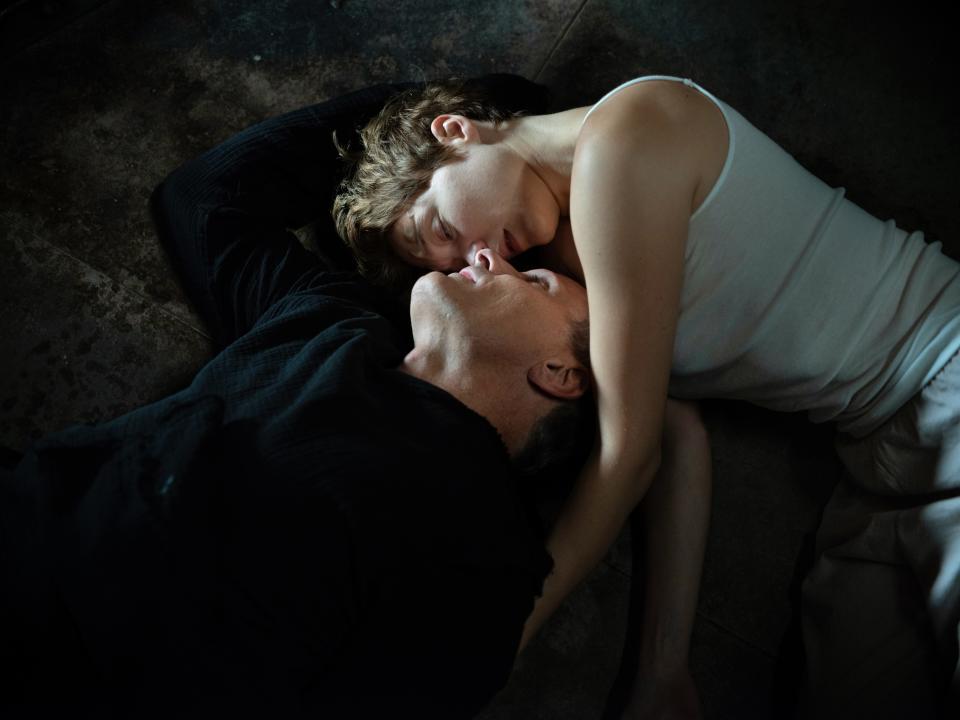'Crimes of the Future' finds 'spookily' timely horror in abortion rights, climate change parallels
In April, film distributor Neon released the squirmy first trailer for "Crimes of the Future," teasing sexy surgery, a multi-eared man and a boy eating a plastic wastebasket.
But moviegoers expecting a gory thrill fest might be taken aback by director David Cronenberg's sci-fi drama (now in theaters), which gets under your skin with its moving meditation on mortality and real-world issues.
"It's very profound and very deep," says actress Léa Seydoux, who co-stars with Viggo Mortensen and Kristen Stewart. "David is much more than a filmmaker – he's a philosopher and poet as well. There's a line in the film that says, 'We're creating meaning out of emptiness.' And that's what he does."
Review: Don't walk out on David Cronenberg's bizarre and insightful 'Crimes of the Future'

Set in a grimy futuristic society where people are largely immune to feeling pain, "Crimes" centers on a pair of performance artists named Saul (Mortensen) and Caprice (Seydoux) who get erotic and creative satisfaction from doing public surgeries. Saul has the ability to rapidly grow new organs inside his body, which Caprice then removes in front of eager audiences. Their two-person show attracts the attention of a nosy detective (Welket Bungué) and mousy organ registrar (Stewart) as authorities try to keep tabs and crack down on these radical mutations.
Cronenberg, 79, first wrote the script 20 years ago, inspired by his own thoughts and fears about growing older.
"I could see changes in my own body, and even then, I had a lot of friends who had died," he says. "You start to think about your vulnerability and mortality. I've always been basically an atheist and the understanding is that we're here for a short time. We are a body. Body is reality."
'We will not go back': Selena Gomez, Megan Thee Stallion, more support Roe v. Wade in NYT ad

But two decades ago, he couldn't have imagined just how timely "Crimes" would become.
Early last month, a leaked draft opinion from the Supreme Court suggested it may overturn Roe v. Wade, allowing states to make abortion illegal. So when the movie premiered at the Cannes Film Festival in France less than three weeks later, critics and journalists couldn't help but draw parallels between real-life events and Cronenberg's vision of a government trying to regulate people's bodies.
"If you make an interesting, provocative movie, people are going to find resonance in their own lives," Cronenberg says. "It doesn't mean that I had a specifically political agenda when I made the movie, but I agree with all of those things. The movie is about control of the body by police state, so it spookily, unfortunately becomes relevant in the U.S. right now because of the Roe v. Wade decisions and so on. If it inspires anyone to action, then that's a good thing."
What to watch this weekend: Kristen Stewart in 'Crimes of the Future,' queer rom-com 'Fire Island'
"Crimes" also has a pertinent message about global warming, imagining a dire future where the planet has become overrun by industrial waste and food has grown scarce. In response, a group of underground activists (led by Scott Speedman) have willfully altered their bodies so they're able to digest plastics and survive on toxic chemicals.
"It's like Jonathan Swift's 'Modest Proposal,' where he suggested the solution to the Irish famine was that the Irish eat their children," Cronenberg says. "My satire is a little more gentle, saying, 'Well, maybe the solution to plastic pollution is that we teach our bodies to feed on plastic and take nutrients from plastic.'
"Is it plausible? Well, it's plausible. Is it likely? Maybe not. But I throw it into the mix. It's part of a discussion."
'Fire Island': Hulu's gay rom-com pays steamy, stormy ode to 'Pride and Prejudice
This article originally appeared on USA TODAY: 'Crimes of the Future' is 'spookily' relevant, says David Cronenberg
